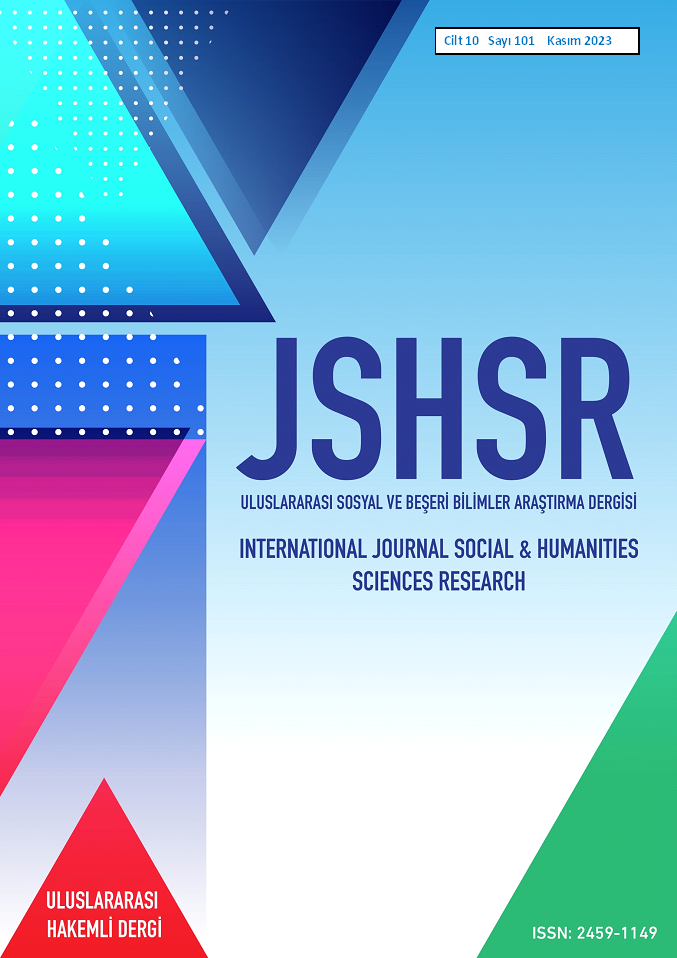Examination of the Management Capacity of Sports Facilities within Sports Organizations: Izmir Province Example
DOI:
https://doi.org/10.5281/zenodo.10253439Keywords:
Sports, Management, Manager, Facility, Country OrganizationAbstract
This research aims to examine the management capacity of the managers of an institution responsible for carrying out sports and youth activities on behalf of the public in Turkey, working within the borders of Izmir Province, and increasing the quality of service received by the public by determining the studies for capacity development. In addition, it aims to investigate whether the management capacity of the managerial staff differs according to the demographic characteristics of the managers. The research was conducted within the scope of the descriptive model, one of the general screening models. The population and sample of the research consist of 66 sports managers working in managerial positions in the sports facilities of sports organizations in Izmir. In the research, full count sampling technique was adopted to determine the sample. A form consisting of two parts was used as the data collection method in the research. While the first part of the form included the section where the demographic characteristics of sports managers were questioned, the "Sports Facility Managers' Management Capacity Evaluation Scale" developed by Çetin and Karaçam (2021) was used in the second part. Analysis of the data obtained from the research was carried out with the IBM SPSS 22.0 package program. No statistically significant difference was detected in the sports facilities management capacities of sports managers in the sub-dimensions of customer relationship management, human resources management, operations management and financial management, according to gender, education level, age and service status variables. It was determined that the sports facilities management capacities of sports managers were similar according to the determined demographic variables. However, the rank averages according to the gender variable show that female sports managers are better at solving customer problems, minimizing risks in the business, and following up on the tasks in the business, and male sports managers are better in financial matters. According to the age variable, it is concluded that an increase or decrease in the age of sports managers does not cause an increase or decrease in their sports facility management capacity perception.
References
Argon, T. ve Demirer, S. (2015). Okul yöneticilerinin bilgi yönetimi ve insan kaynaklarını yönetimi yeterlikleri. AİBÜ Sosyal Bilimler Enstitüsü Dergisi, 15(3), 201-246.
Atalan, B. D. (2017). Öğretim elemanlarının mobbing'e maruz kalma düzeylerinin iş doyumuyla ilişkisi. [Yayınlanmamış Yükseklisans Tezi]. Eğitim Bilimleri Enstitüsü, Fırat Üniversitesi.
Çetin, A. ve Karaçam, A. (2021). Spor tesislerinin yönetim kapasitesini belirlemeye yönelik bir ölçek geliştirme çalışması. Spor ve Performans Araştırmaları Dergisi, 12(1), 20-30.
Danacı, E. (2015). Spor yöneticilerinin liderlik ve duygusal zekâ düzeyleri arasındaki ilişkinin belirlenmesi: İstanbul ili örneklemi. [Yayınlanmamış Yükseklisans Tezi]. Sosyal Bilimler Enstitüsü, İstanbul Gelişim Üniversitesi.
Demirtaş, Ö. (2021). Kampüs rekreasyonu: örnek model çalışması. Akademisyen Kitapevi.
Devecioğlu, S., Çoban, B., ve Karakaya, Y. E. (2011). Spor kulüplerinin yönetim modellerinin değerlendirilmesi. Dumlupınar Üniversitesi Sosyal Bilimler Dergisi, 2011(31), 51-67.
Doğar, Y. (1997). Türkiye’de spor yönetimi. Öz Akdeniz Ofset.
Duğan, Ö. (2006). Spor yöneticilerinin etik kod analizi: ölçek geliştirme çalışması. [Yayınlanmamış Yükseklisans Tezi]. Sağlık Bilimleri Enstitüsü, Celal Bayar Üniversitesi.
Erdoğan, İ. (1998). Araştırma dizaynı ve istatistik yöntemleri. Emel Matbaası.
Genç, N. (2004). Yönetim ve organizasyon. Seçkin Yayıncılık.
Gökçeoğlu, H. (2006). Antalya ilinde bulunan spor yöneticilerinin toplam kalite yönetimine bakış açılarına ilişkin bir araştırma. [Yayınlanmamış Yükseklisans Tezi]. Sosyal Bilimler Enstitüsü, Akdeniz Üniversitesi.
İmamoğlu, A. F. (1992). Fonksiyonel açıdan spor yönetiminin anlamı ve önemi. Gazi Üniversitesi Gazi Eğitim Fakültesi Dergisi, 8(1), 22-33.
Katırcı H. (2012). Spor tesis işletmesi kavramı. Katırcı H. (Ed.), spor tesis işletmesi ve saha malzeme bilgisi içinde, (1. Baskı). Eskişehir, T.C. Anadolu Üniversitesi Yayını No: 2474 Açıköğretim Fakültesi Yayını No: 1445
Keskin, M. T. (2012). Aday spor yönetici adaylarının eleştirel düşünme eğilimlerinin belirlenmesi ve karşılaştırılması. [Yayınlanmamış Yükseklisans Tezi]. Sosyal Bilimler Enstitüsü, Aksaray Üniversitesi
Lin, N. (1976). Foundations of social research. McGraw-Hill Companies.
Masteralexis, J., Masteralexis, L., & Snyder, K. (2013). Enough is enough: the case for federal regulation of sport agents. Jeffrey S. Moorad Sports LJ, 20(1), 69-105.
Sherman, J. S. (2009). The correlation between critical thinking, emotional intelligenge, and conflict management modes of financial services managers. [Unpublished doctoral dissertation]. University of Phoenix.
Türkmen, H. (2009). İlköğretim Okul Müdürlerinin İnsan Kaynaklarını Yönetme Yeterlilikleri. [Yayınlanmamış Yükseklisans Tezi]. Sosyal Bilimler Enstitüsü, İstanbul Yeditepe Üniversitesi
Tokay Argan, M., Argan, M., ve Kurulgan, M. (2008). Kitaplara ilişkin biçimsel özelliklerin okuyucu tutumları üzerine etkisi. Bilgi Dünyası, 9(1), 179-206.
Valaei, N. ve Aziz, K. (2012). Awareness: a study of knowledge management adoption amongst Iranian SMEs. Journal of Organizational Knowledge Management, (2012), 1-14. https://doi.org/10.5171/ 2012.465399.
Downloads
Published
How to Cite
Issue
Section
License
Copyright (c) 2023 INTERNATIONAL JOURNAL OF SOCIAL HUMANITIES SCIENCES RESEARCH

This work is licensed under a Creative Commons Attribution 4.0 International License.


